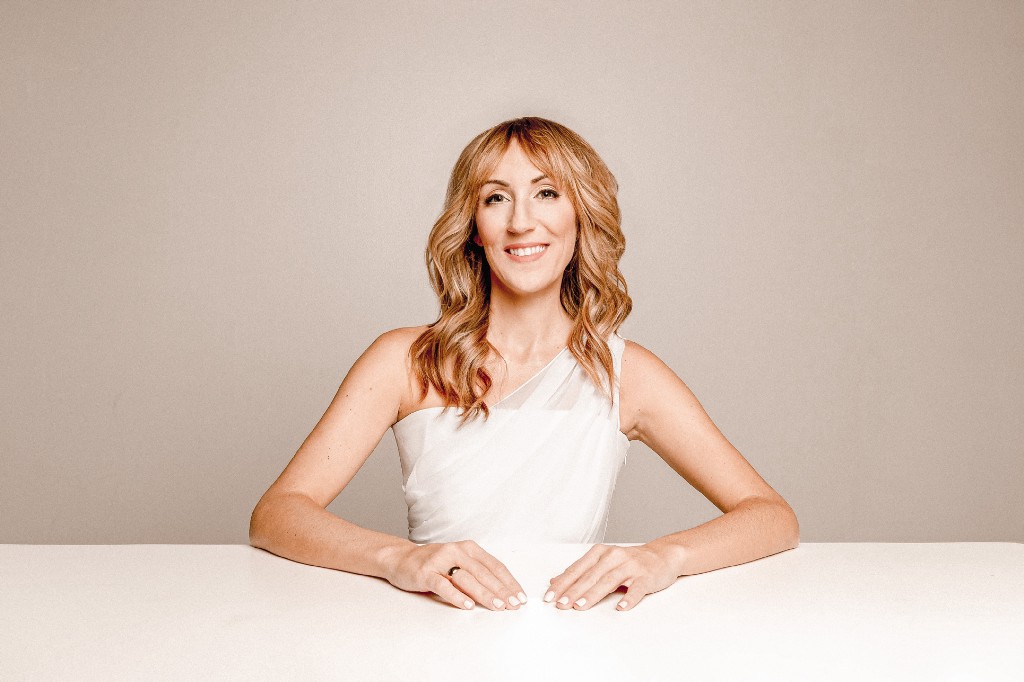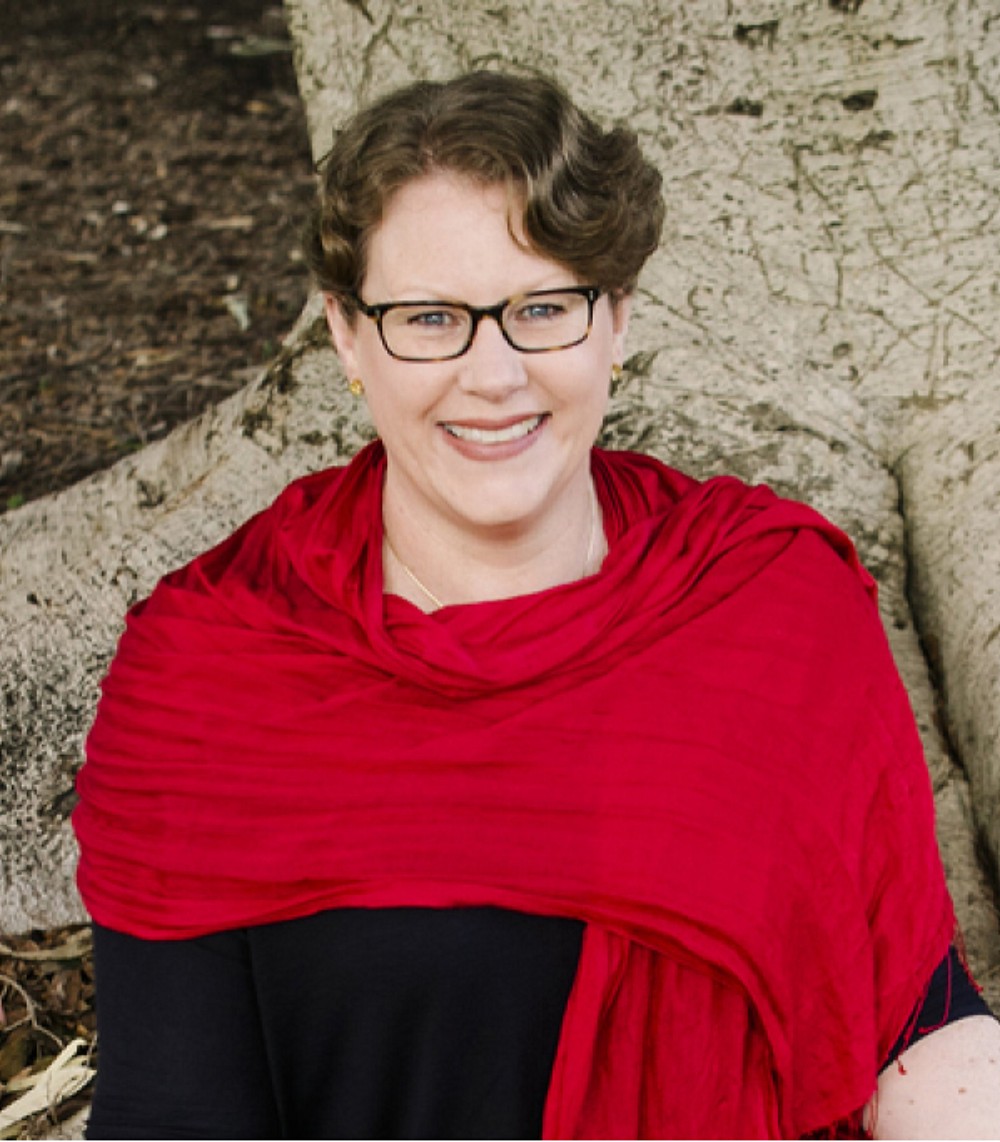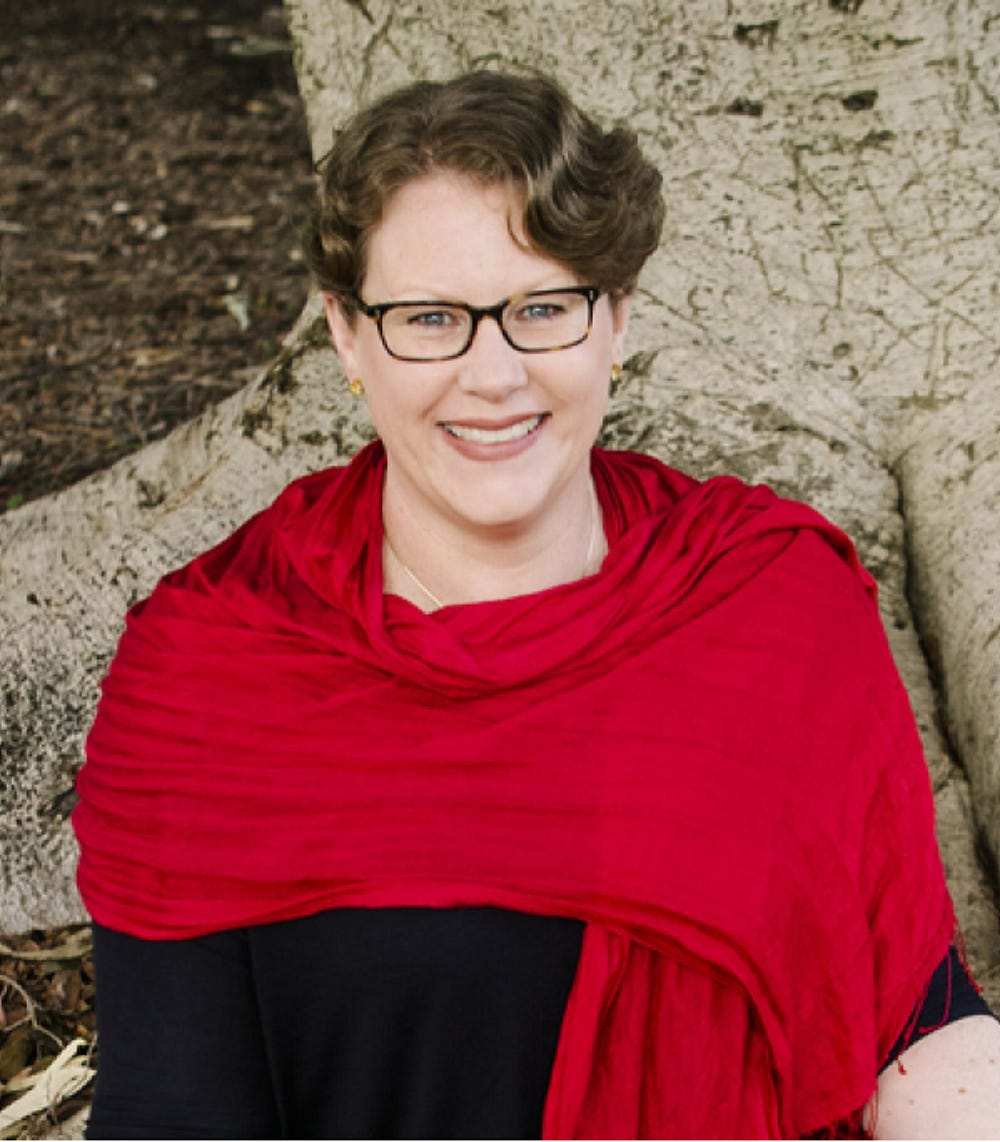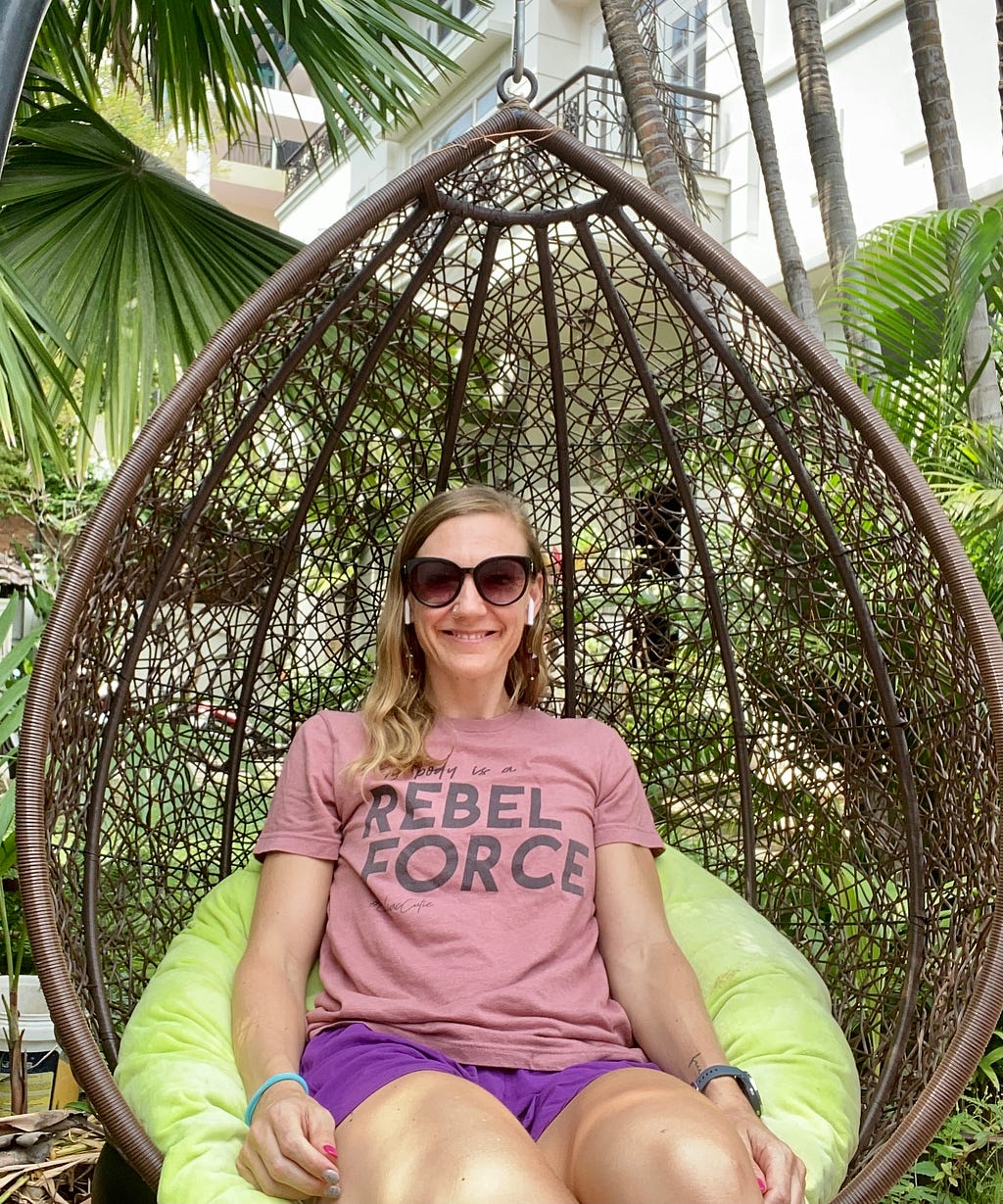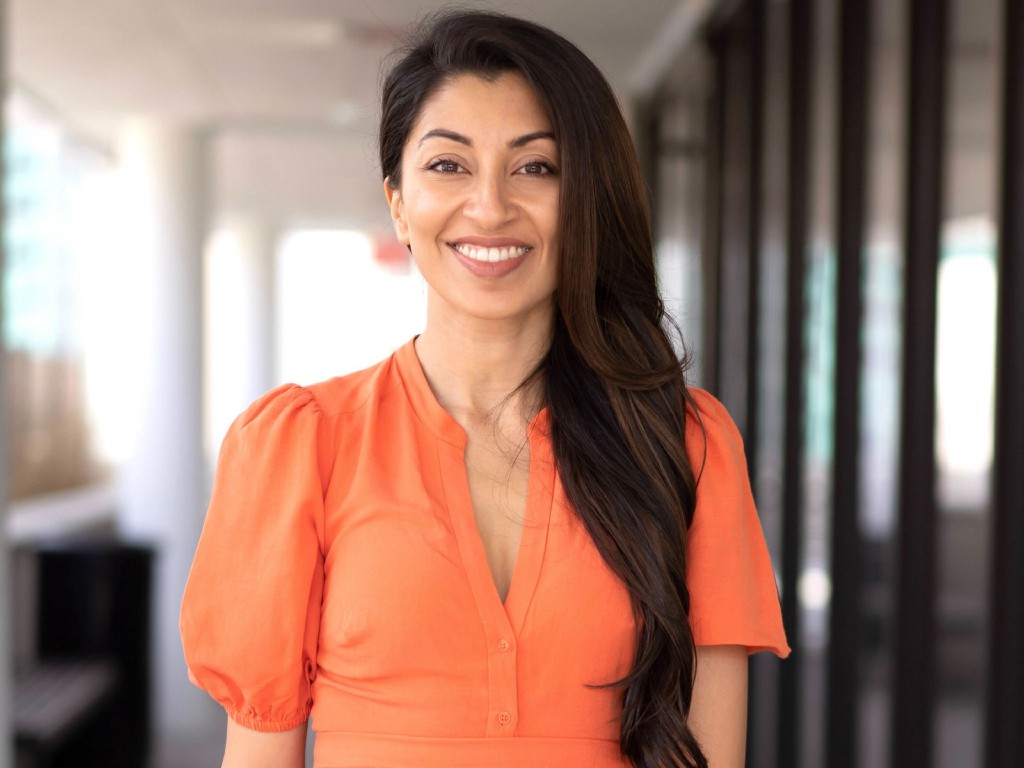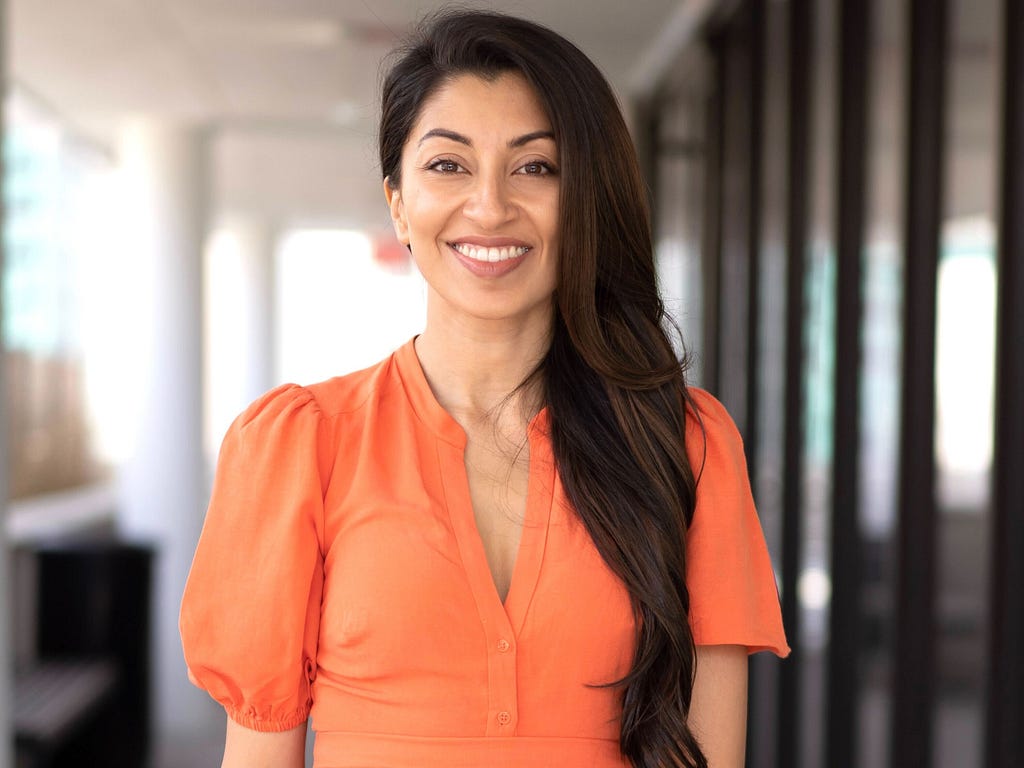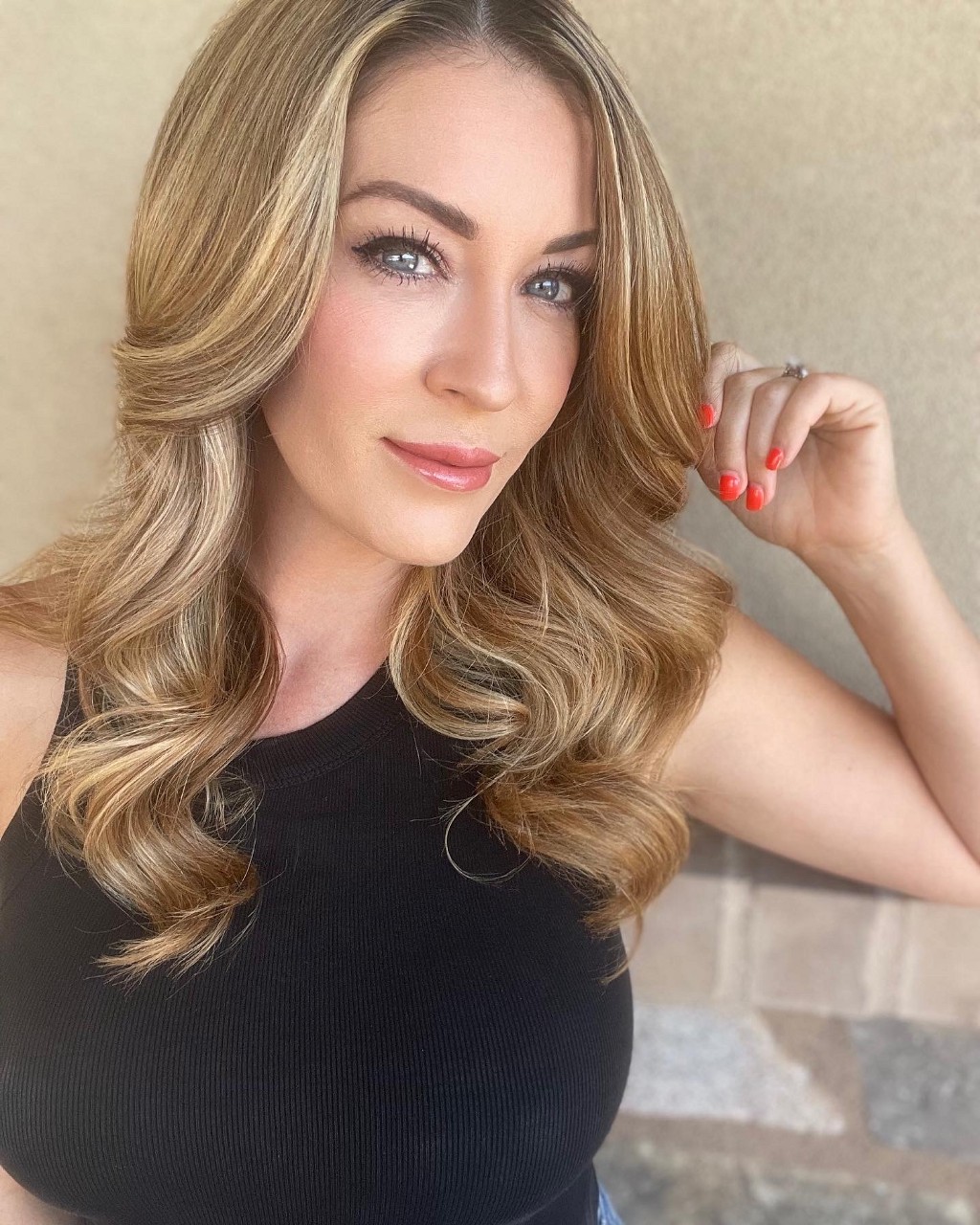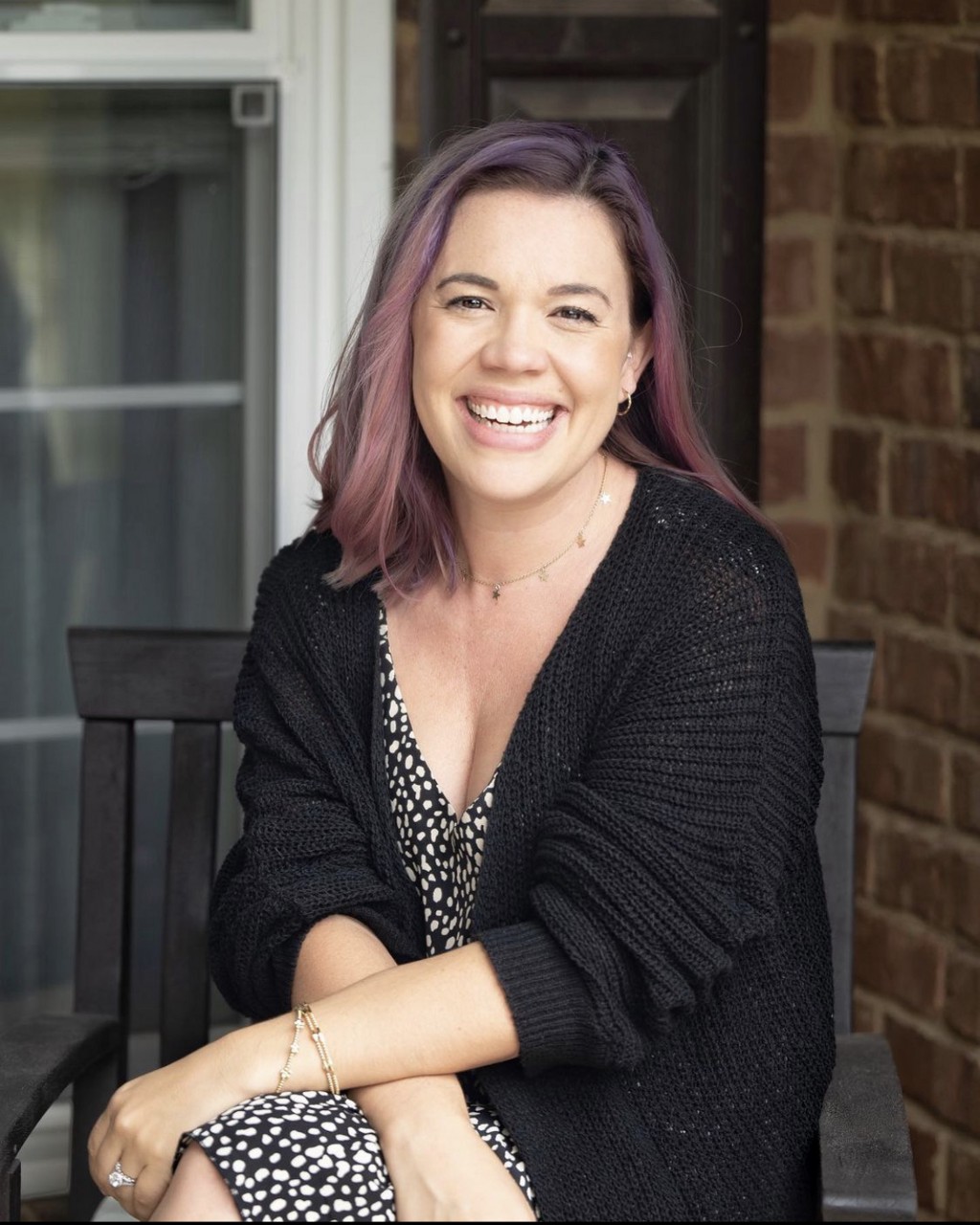An Interview With Candice Georgiadis
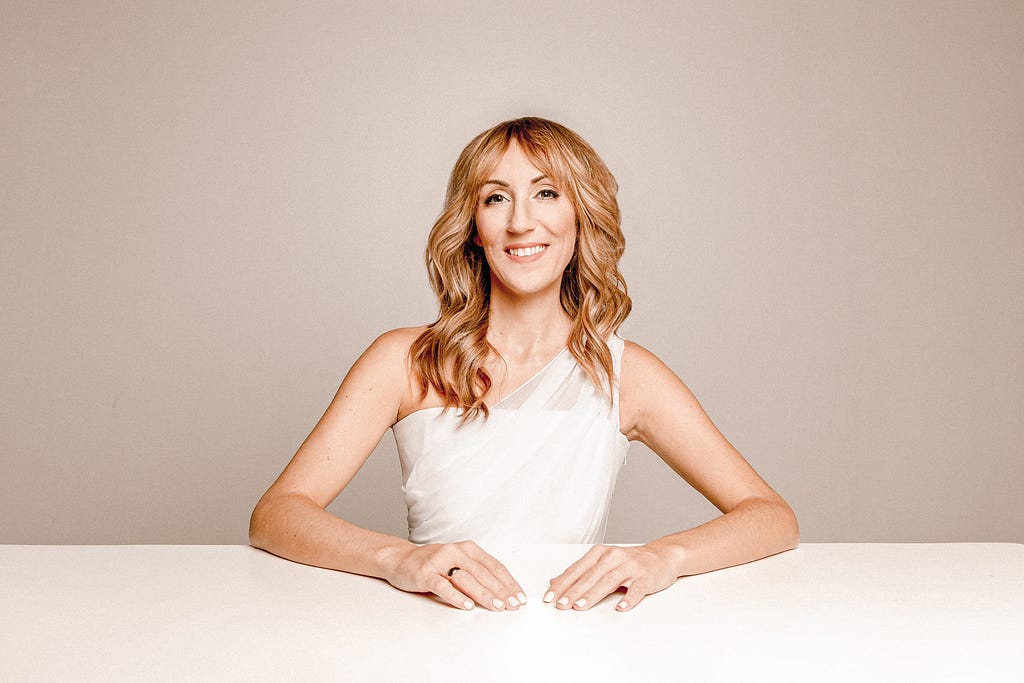
Practice regular mental hygiene. Just like we have to bathe and brush our teeth regularly to maintain bodily hygiene, we have to put regular systems and habits in place to maintain our mental hygiene, which keeps our mindset in a place of abundance and growth!
As a part of my series about the “5 Things Anyone Can Do To Optimize Their Mental Wellness”, I had the pleasure of interviewing Shauna VanBogart.
Shauna VanBogart helps small business owners build, run, and scale sustainable service-based businesses that feel as good as they look. With a graduate degree in Communications and Leadership Studies, mastery-level certification in clinical hypnotherapy, and 10+ years mentoring business owners running everything from start-ups to multi-million dollar brands, Shauna knows what it takes to evolve a business and elevate its income.
On a mission to help business owners create greater financial freedom, fulfillment, and impact, Shauna utilizes her experience and ongoing education to work with clients to transform their business identity so they can bring their best and most authentic selves into alignment with their business and enjoy sustainable, soulful success with more ease.
Thank you so much for doing this with us! Our readers would love to “get to know you” a bit better. Can you share with us the backstory about what brought you to your specific career path?
I got my start as an entrepreneur back in 2007, when I successfully launched the first full-service Image Consultancy in South Carolina. In 2011, I co-founded the Studio for Image Professionals and offered training resources for aspiring consultants in more than 30 countries. Wanting to build upon my entrepreneurial platform, I then expanded my work in the personal development industry, leading an editorial site with more than 50 contributing writers before focusing exclusively on growth-oriented entrepreneurs.
Today, I help entrepreneurs and small business owners build, run, and scale sustainable service-based businesses that feel as good as they look. My body of work and study includes a graduate degree in Communications and Leadership Studies, a hypnotherapy certification from the American Hypnosis and Coaching Academy, and my personal business experience, plus my experience from 10+ years mentoring business owners running everything from start-ups to multi-million dollar brands. I use every bit of what I’ve learned to help clients in the consulting and coaching industries to refine their business model, scale their expertise, and develop an online presence to increase revenue and create sustainable, soulful success.
I often say that you can sum up my background in image consultancy and my current work with business owners by this: I’m an expert at helping people get what they want!
Can you share the most interesting story that happened to you since you started your career?
As I mentioned, one of my previous businesses was a training hub for image consultants worldwide. When I created that platform, I had one online program but knew I wanted to expand into corporate offerings but I personally did not have the expertise. In a series of very serendipitous events, I crossed paths with my biggest competitor in the space. We hit it off and decided we could create more impact for ourselves and our audience if we partnered instead of competing, so we did. She became an official partner of my business and we were able to scale the one offering up to a dozen plus, serving individuals in more than 30 countries. I could not have done this if I was too fixated on competition versus collaboration.
Can you share a story with us about the most humorous mistake you made when you were first starting? What lesson or take-away did you learn from that?
When I started my business, I had no money and was trying to do everything myself. I always liked minimalistic brand elements and so when I created my business cards on Vistaprint, I thought it’d be so cool to just have my name and my website — no contact information. I thought it had an air of mystery to it that was engaging. My thought is that it would push people to my site to learn more and so I’d get the web traffic. Turns out, when I went to networking events, people hated it. The font was a fancy script that looked good but it was very difficult to read so people kept asking me the name of my company and because it only had my website, people were also always asking me to write my email address on the card. Lesson learned — it can be cool but it also has to be functional!
None of us are able to achieve success without some help along the way. Is there a particular person who you are grateful towards who helped get you to where you are? Can you share a story about that?
Questions like this are difficult for me to answer because I believe we can learn a little something from every connection in our lives. The most valuable growth in my business has come as a result of my internal growth and healing, of which a lot of people have shaped, including my adversaries. In fact, I tell my audience to live a “trigger happy” life. Meaning, when they are triggered by people — their spouse, their competitors, another successful business owner that they’re jealous of, they can use that trigger to deepen and transmute themselves for success. I’ve done a significant amount of inner work in my life and it’s all been a result of being incredibly self-aware of how I’m orienting to the people around me. So in that sense, a lot of people have been my teachers.
What advice would you suggest to your colleagues in your industry to thrive and avoid burnout?
I know a lot of people talk about work-life balance and self-care but one thing I’ve found makes a huge difference is actually instituting a practice of receiving.
It can be so easy to get bogged down with output: how much we’re producing, what we’re putting out into the world, what we’re providing to clients and customers. We’re in the business of serving, so this is a totally natural place to get stuck. But if all of the focus is on output, that’s the fastest path to burnout.
So focusing on your input — both with things like self-care or as I call it, mental hygiene, but also with inputting or receiving the impact of your work — goes a long way to creating a more even energy exchange in your business.
That might look like receiving money but also looks like receiving positive feedback, client results, feelings of fulfillment, etc. Don’t let those moments fly by unacknowledged and uncelebrated. Receive the energetic rewards of the energy you have put in and recognize that you are worthy of it. It is so life- and joy-giving, and it will sustain you through the highs and lows that come with running a business.
What advice would you give to other leaders about how to create a fantastic work culture?
Stay present. Cultivate the art of “just being”. This seems so simple, but it has such a huge impact on the way we relate to the people around us. It keeps us connected to our bodies and our emotions so that we can respond rather than react. They have a lot to teach us if we’re willing to listen. It also keeps us from becoming too rigid in our expectations and leaves room for deep listening and collaboration.
If your mind isn’t running ahead to some future idea of what “should” be, and you are able to just be in the present moment, you open yourself up to new possibilities and creative ideas. Not only is this great for you, but it’s also helpful for your clients, colleagues, and team members. When people feel free to be themselves and contribute and be received with openness and curiosity, they thrive!
Ok thank you for all that. Now let’s move to the main focus of our interview. Mental health is often looked at in binary terms; those who are healthy and those who have mental illness. The truth, however, is that mental wellness is a huge spectrum. Even those who are “mentally healthy” can still improve their mental wellness. From your experience or research, what are five steps that each of us can take to improve or optimize our mental wellness. Can you please share a story or example for each.
1. Practice regular mental hygiene. Just like we have to bathe and brush our teeth regularly to maintain bodily hygiene, we have to put regular systems and habits in place to maintain our mental hygiene, which keeps our mindset in a place of abundance and growth!
This is not one-and-done work; it really is a daily commitment and daily practice. Things like journaling, meditation, affirmations, breathwork, etc. can greatly impact how you feel and how you (mentally) engage with the world.
My business mentorship community, High Mynds, is all about this, and subscribers to my mailing list also receive daily “remynders” to help them maintain that daily mental hygiene practice. It’s something we can start with just 5 seconds a day!
2. Surround yourself with others who are doing this work. Humans are designed to be in a community. (This is another reason I created my High Mynds Mentorship Community.) No matter how mentally strong and resilient you are, you need the support, collaboration, and camaraderie of other people to maintain mental wellness, because we all have our low moments, pitfalls, and blind spots, and no one should have to navigate those alone.
Jim Rohn said, “You are the average of the five people you spend the most time with.” And this is a lot more than just a pithy saying, there’s some actual science behind this and the value of seeing who is in your corner. It’s based on the Social Proximity Effect, which describes the tendency for people to mirror the habits of those they spend the most time with. Harvard social psychologist Dr. David McClelland even gleaned from his research that the people you habitually associate with can determine as much as 95% of your success or failure in life. (95%!)
3. Work with your subconscious to shift on an identity level. If practices and behaviors are one side of the coin, internal beliefs and thought processes are the other side. If you really want to make your habits and practices sustainable long-term and optimize your mental wellness, you have to get your subconscious on board.
The fastest and most easeful way I’ve found of doing this is through hypnosis. It’s not as “out there” as pop culture has made it seem! Clinical hypnosis is different than “stage hypnosis”, and it’s a scientifically proven tool to help align your subconscious and conscious mind so you can, quite literally, get out of your own way. The form I teach is self-hypnosis, and it’s similar to a guided meditation that not only relaxes you but also shifts your habits and core stories at the same time.
This is so powerful because consciously we might understand something (such as “working out is good for you” or “positive thinking will help you grow”), but your actions will only change (and therefore your results will only change) when your subconscious aligns with your conscious thinking.
If you want rapid results, I suggest adding hypnosis to your morning routine and picking one hypnosis track to follow every day for 21 days. If you’re looking for an introductory track to get you started, check out this free Overcoming Visibility Hypnosis I created to help business owners feel more confident, comfortable, and committed to being visible in their businesses!
4. Read books, listen to livestreams, podcasts, etc. This is such a simple one to incorporate into your days. There has never before been such an abundance of resources out there (many of them free) on literally any topic you want to learn about or any mindset you want to strengthen. And with such a smorgasbord of options, you can tailor your playlist and/or reading list with the voices that resonate with you the most. You could apply the phrase, “You are what you eat” here: When you consume a steady diet of high-vibration content, you’ll find yourself regularly thinking and functioning at a high level.
If you’re finding all of the resources available to you online a bit overwhelming and what you’ve heard from me so far is resonating, consider starting with my podcast, Just Being. I created Just Being to bridge the gap between what it means to just be, which is ultimately a road to self-discovery, tapping into your sense of self, and allowing yourself to be seen… and how that plays a role in building an abundant, legitimate and profitable business.
Sharing my story with you over a 16-episode season (intended for you to listen all the way through from 1 to 16 like you would watch a show on Netflix) is the best way I know to give a tangible example of what it means to “just be” (and how IN just being, we get the things we really want and we get them much faster).
You can listen to Just Being on the platform of your choice here.
5. Take action. Everything I’ve already talked about is essential for optimizing your mental wellness, but it’ll only take you so far if you don’t actually integrate it into action. It’s very common to get stuck in analysis paralysis, waiting for things to feel completely “right” before you can make the moves you want to make in your life. But one of my favorite mantras is: All moves are the right moves. At some point, you need to trust the work you’ve already done and — even more importantly — trust yourself to know what you need to do when you need to do it.
That breakthrough you had while journaling or listening to that podcast? That’s genuinely awesome. But don’t forget to take that breakthrough to the field. That’s where the actual shift comes from. It’s not enough to now see, you have to now implement. The more you do this, the more evidence you will begin to build for yourself that you are fully capable and have everything you need to get to where you want to be. All moves are the right moves. So make a move already!
*But just to be clear: When I say “all moves are the right moves” that does not mean “I know every move of mine is the right one.” It means no matter what happens, I deeply trust myself, and the moves I make are done with thought and intent, so that whatever and however it plays out, it will be FOR me. Meaning it pays off. That does not always mean it pays off the way my ego wants it to pay off.
How about teens and pre teens. Are there any specific new ideas you would suggest for teens and pre teens to optimize their mental wellness?
So much of our worldview is shaped during our childhood, including those precious teenage years. I really believe journaling was a profoundly impactful tool for me during those years and I would encourage any teenager to create a journaling practice for themselves on a daily basis to connect with themselves and explore their inner worlds. I think we are living in a world now where mental wellness is just as — if not more — important than physical wellness. It’s become less stigmatized to get support for our emotions and feelings and future generations will continue to destigmatize the entire mental health movement. I think it’s really inspiring.
Is there a particular book that made a significant impact on you? Can you share a story?
There is a fiction book by Mark Danielewski called House of Leaves that I read in high school for the first time that has inspired me in so many ways. The author is an artist and an author and the way he writes books is so innovative, creative, and almost mystical. House of Leaves is not just another book — it’s a complete experience reading it, from the way he formats the pages to the ways he incorporates cryptic messages and hints throughout the book by use of fonts, colors, and symbols. I absolutely love how he’s taken a creative spin with literature; the way he creates experiences with his audience and the way he writes his books inspires me in my career to look at very mundane or typical things and see if I can break from the mold a little bit to create experiences more than transactions with my audience.
You are a person of great influence. If you could start a movement that would bring the most amount of good to the most amount of people, what would that be? You never know what your idea can trigger. 🙂
Receiving, hands down. I believe our world would be so fundamentally different if we were taught how to receive from an early age. Guilt and shame around desire and what’s “safe” to have are things that have been, quite literally, passed down in our DNA, and so I’d start a movement to help intuitive, empathetic business owners especially become master receivers! (Because master receivers, receive more and I’d love to live in a world where these business owners had the resources to make the change they want to see!)
Can you please give us your favorite “Life Lesson Quote”? Do you have a story about how that was relevant in your life?
Lao Tzu — ‘To become learned, each day add something. To become enlightened, each day drop something.’
I believe it is absolutely crucial to stay as streamlined as possible, regularly releasing what no longer serves you (mentally and physically). It is what keeps your mind clear or as I say, “Keeps you in your highest, most abundant mynd” where your creativity flows, ideas spark, and you feel in flow.
What is the best way our readers can follow you on social media?
You can find me on my website. You can also follow me on Instagram. And you can listen to my podcast, Just Being.
Thank you for these fantastic insights. We wish you only continued success in your great work!
Shauna VanBogart: 5 Things Anyone Can Do To Optimize Their Mental Wellness was originally published in Authority Magazine on Medium, where people are continuing the conversation by highlighting and responding to this story.


